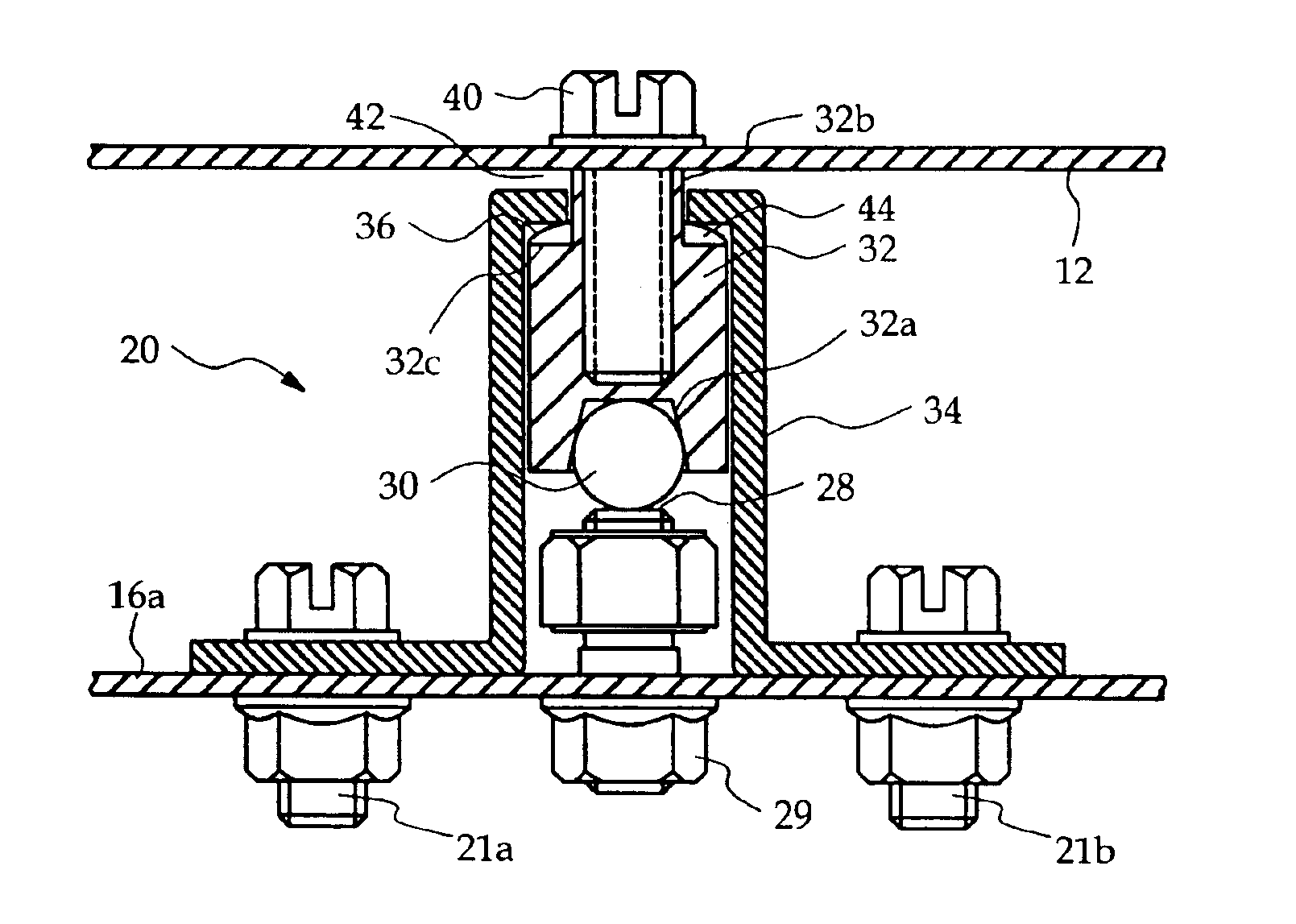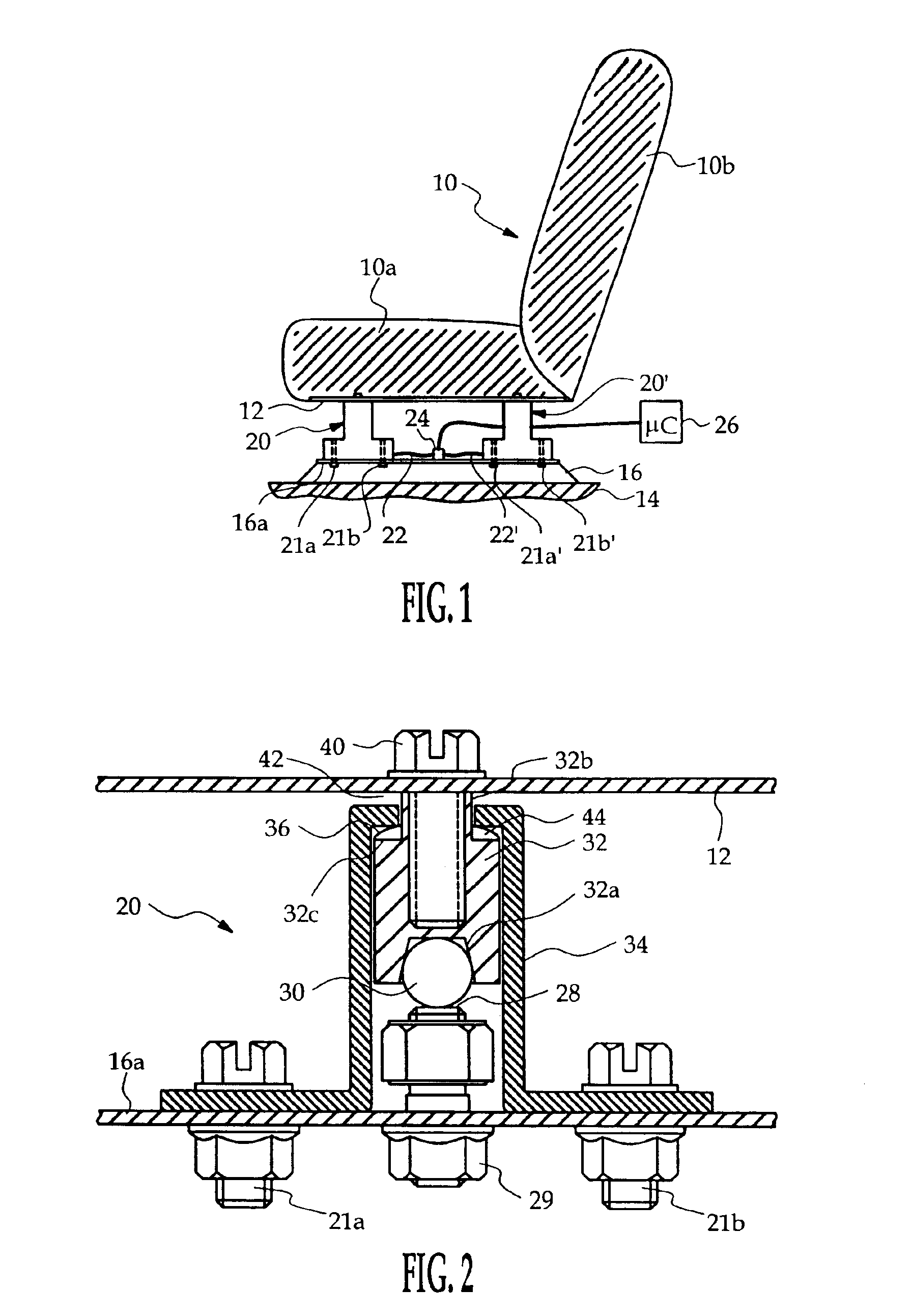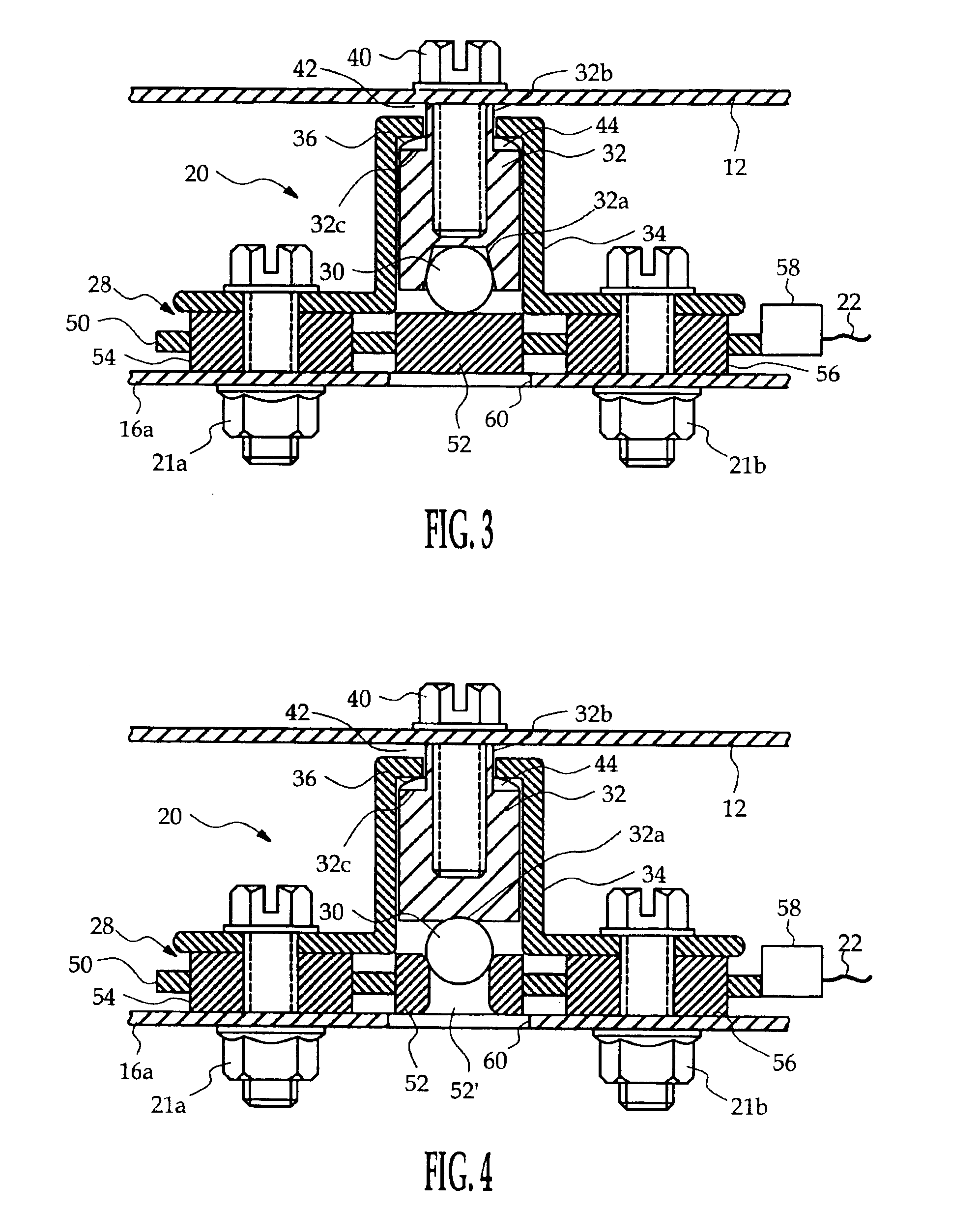Frame-based occupant weight estimation load cell with ball-actuated force sensor
a technology of occupant weight estimation and load cell, which is applied in the field of load cell, can solve the problems of inaccurate occupant weight estimation, bending or cross-axis sensitive strain gauge elements,
- Summary
- Abstract
- Description
- Claims
- Application Information
AI Technical Summary
Benefits of technology
Problems solved by technology
Method used
Image
Examples
Embodiment Construction
[0011]Referring to the drawings, and particularly to FIG. 1, the reference numeral 10 generally designates a vehicle seat, including seat and backrest cushions 10a, 10b supported on a metal frame 12. The seat 10 is secured to the vehicle floor 14 by a pair of laterally spaced floor brackets 16, only one of which is shown in FIG. 1. The floor bracket 16 is bolted to floor 14, and a set of load cells 20, 20′ are interposed between the seat frame 12 and the floor bracket 16 for supporting the seat 10 and estimating the weight of a seat occupant. In the illustrated embodiment, the floor bracket 16 includes an integral flange 16a, and the load cells 20, 20′ are secured to the floor bracket 16 by a set of bolts 21a, 21b; 21a′, 21b′ that seat against flange 16a. The load cells 20, 20′ produce electrical outputs on lines 22, 22′ indicative of the forces transmitted therethrough; the lines 22 and 22′ are coupled to a connector 24, which in turn is electrically coupled to a microcontroller (u...
PUM
| Property | Measurement | Unit |
|---|---|---|
| weight | aaaaa | aaaaa |
| pressure | aaaaa | aaaaa |
| forces | aaaaa | aaaaa |
Abstract
Description
Claims
Application Information
 Login to View More
Login to View More - R&D
- Intellectual Property
- Life Sciences
- Materials
- Tech Scout
- Unparalleled Data Quality
- Higher Quality Content
- 60% Fewer Hallucinations
Browse by: Latest US Patents, China's latest patents, Technical Efficacy Thesaurus, Application Domain, Technology Topic, Popular Technical Reports.
© 2025 PatSnap. All rights reserved.Legal|Privacy policy|Modern Slavery Act Transparency Statement|Sitemap|About US| Contact US: help@patsnap.com



